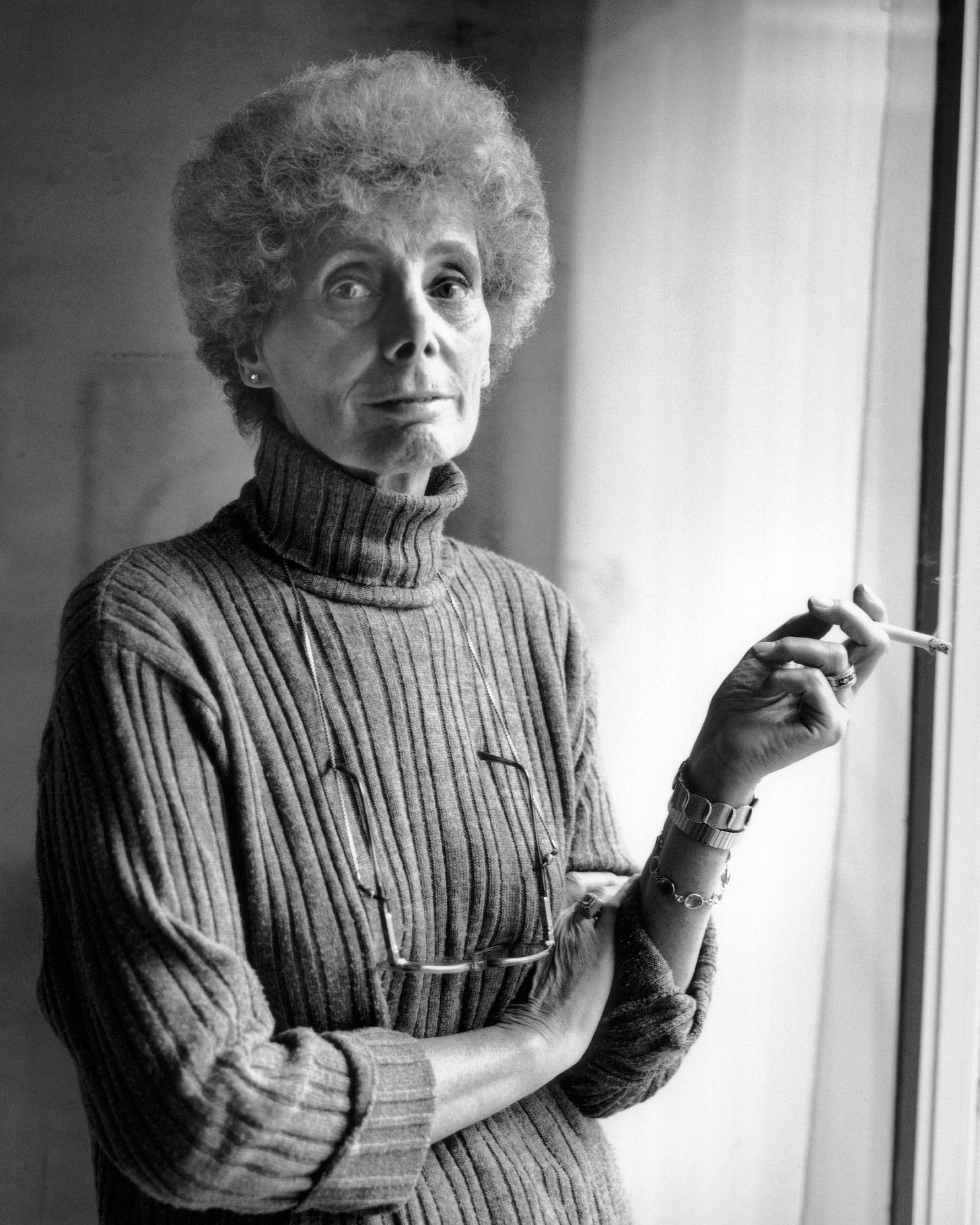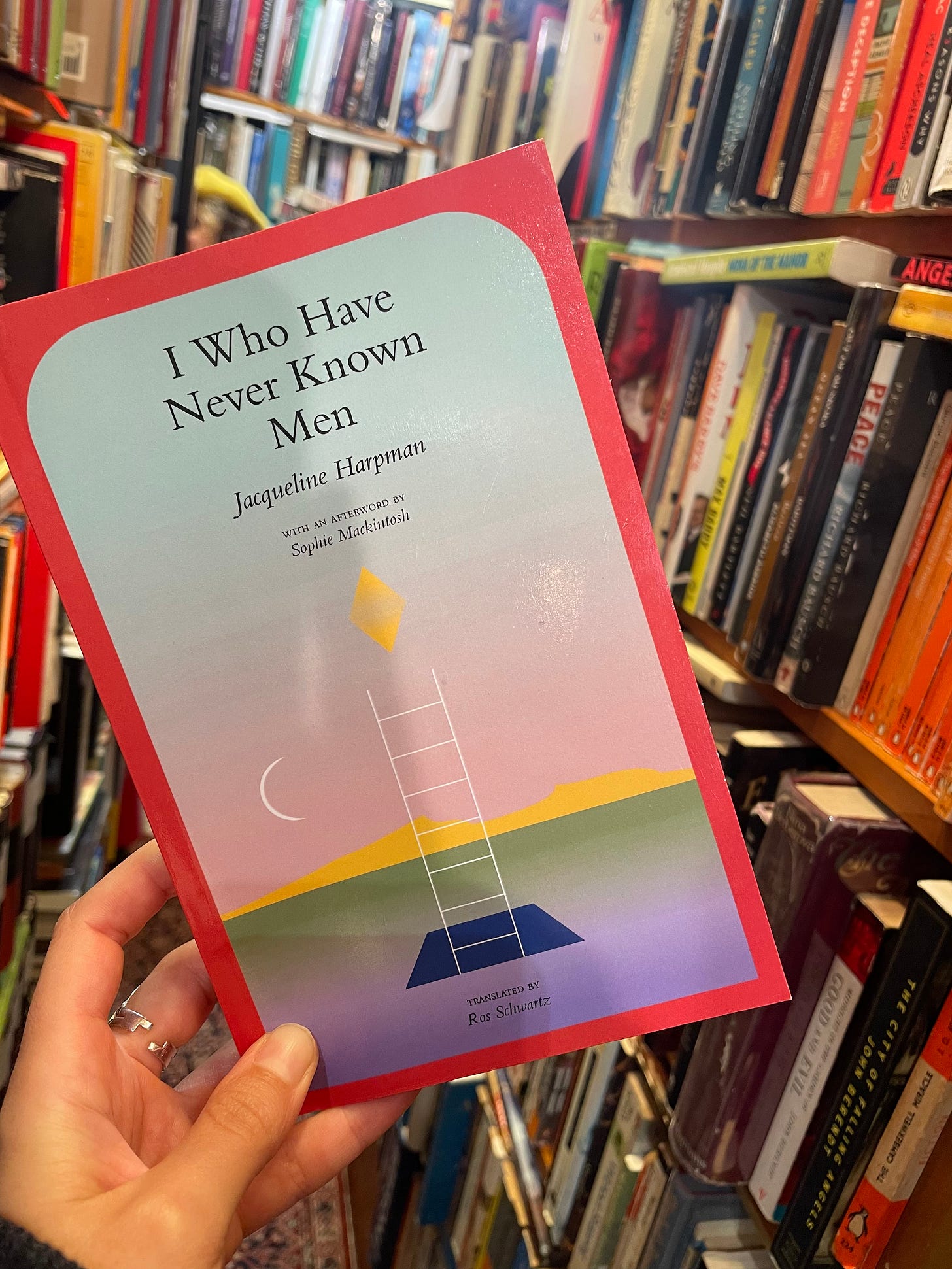We Need Books That Shake Us (Awake)
Some books arrive like lightning—jolting us out of complacency, asking us to think harder, feel deeper. Jacqueline Harpman’s I Who Have Never Known Men («Moi Qui N’ai Pas Connu Les Hommes») is one of those books.
It deserves a broad readership—especially in times like these, when we need literature that dares to ask uncomfortable, essential questions.
And that’s why I’m writing this.
Thank God for Book Clubs
This was our book club’s pick this month. I almost didn’t read it—it completely dropped off my radar. And I am so fucking glad I did. Shoutout to my book club girlies—thank god for you.
Truth be told, I don’t usually gravitate toward science fiction. It rarely resonates with me. I like fiction steeped in real pain—the kind that belongs to actual people and echoes the suffering of real societies. (Yes, I’m that joyful little nugget when it comes to my book picks.)
But if this is science fiction, then you’ve got me. Or maybe it’s speculative fiction that I seem to like. Either way—I only like it when it’s this good.
A Minimal Story, A Maximal Impact
This novel is a brilliant, unsettling example of dystopia. It raises enormous philosophical questions, the biggest of which haunts me still: what does it mean to be human—especially when everything has been stripped away? Society, family, memory, language, even the world as we know it.
The story is minimal, yet deeply haunting. Maybe it’s that very minimalism that makes it so chilling—because it feels so plausible. Especially when you hold it up against the backdrop of our own society. That’s what makes it so impressive: it’s stripped down, almost bare, and still it lingers. It haunts because it resonates. And Harpman delivers that effect masterfully—undoubtedly shaped by her background.
The Weight of History
Jacqueline Harpman was not only a gifted writer but also a trained psychoanalyst. She came from a Jewish family that fled Belgium during the Nazi invasion and lived in exile before returning after the war. That legacy—of trauma, dislocation, and survival—infuses this book with a quiet, devastating intensity. You can feel it, always, humming beneath the narrative.
The Plot (But It’s Not About the Plot)
Here’s the setup: forty women are confined in a cage. Male guards watch them silently. No explanations, no answers. When they finally escape, they realize they don’t even know where they are. They begin wandering, disoriented, across an unfamiliar landscape—led by the youngest among them, a narrator who has no memory of life before captivity.
And so we circle back to that burning question: Who are you—what is your humanity—when your only experience of community is one of imprisonment? When survival is the only thing you've ever known?
Brutal, Yes—But Also So Full of Tenderness
Yes, it’s brutal. And yes, it’s bleak. But it’s also unexpectedly full of love, of quiet dignity, of tenderness. Harpman’s prose is restrained but potent. The narrator’s voice—curious, plainspoken, emotionally raw—guides us through moments of aching beauty. The bonds between the women, forged in silence and suffering, are deeply moving.
What Is Freedom, Really?
Another question that cuts deep: What is freedom? Is it escape? Is it choice? Is it memory? This book doesn't hand over answers—but it asks us to linger in the questions, to sit with the discomfort.
Knowing Harpman’s personal and generational history only deepens the resonance. Her family's forced exile, their return, the scars of war and genocide—all of that casts a long shadow over the story. The women’s senseless incarceration, their fragmented memory, their endurance—all of it reads through the lens of historical trauma. But the book also dares to ask: What comes after survival? How do you rebuild identity, meaning, even the idea of “self,” when everything has been erased?
A Feminine Dystopia, Powerfully Rendered
There’s something fiercely feminine about this book. The narrator has never known a man, yet her life has been defined by male captors. The absence of men is not a void—it’s a presence, a threat, a psychic force that shapes the women’s lives in silence. That tension—between innocence and violence, between survival and memory—is palpable on every page.
This book will stay with me for a long time. Maybe forever. It left me a little haunted, a little cracked open—and deeply grateful for the kinds of stories that hold up a mirror to our darkest possibilities while still believing in something like grace.






